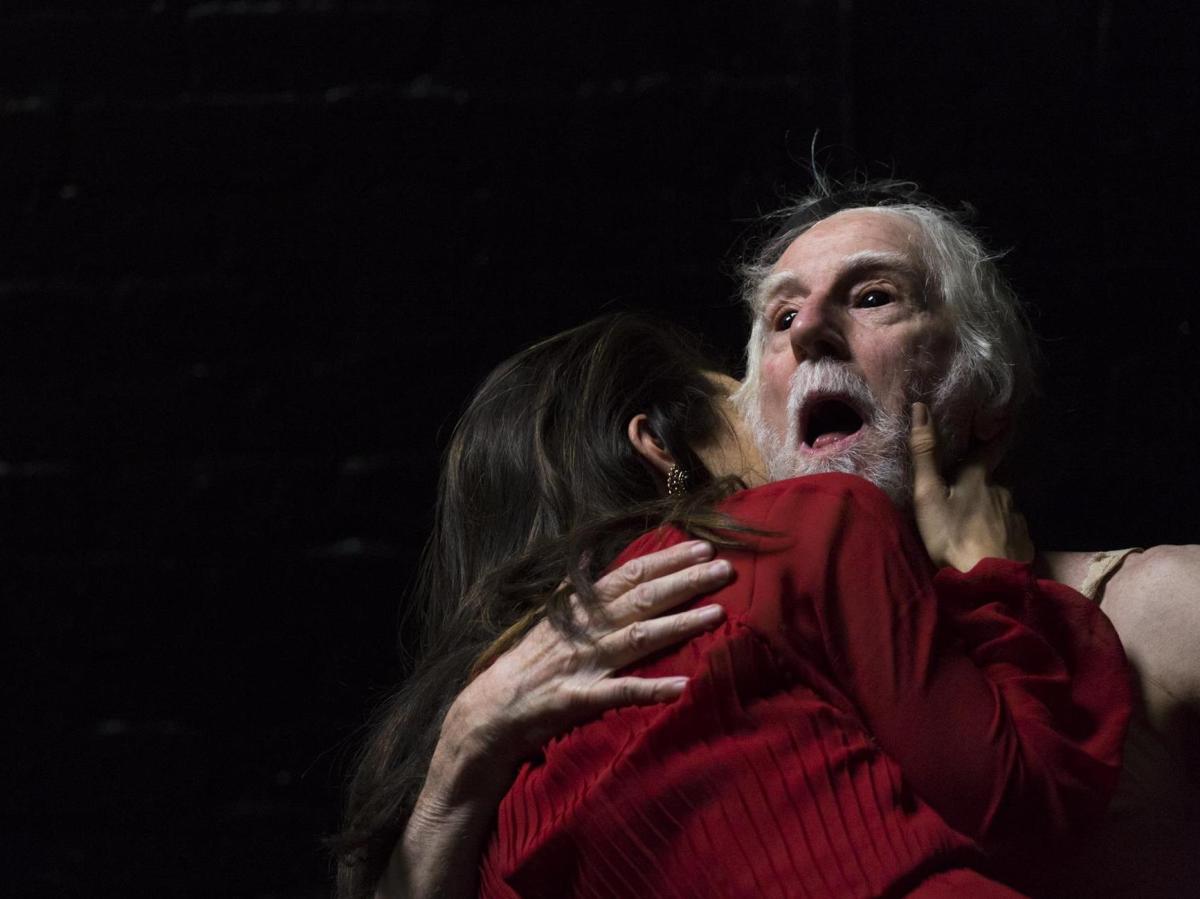Andrea Demetirades and Peter Carroll. Image by Pia Johnson.
Directed by Adena Jacobs, this is a ‘meditation on the myth of Oedipus Rex’, who has done nothing to deserve his appalling fate, and on the notion of suffering itself. Oedipus becomes an Everyman who suffers for no reason simply because the gods wish to punish him.
Max Lyandvert’s electronic score is harsh and unforgiving, catapulting us into the world of the play. The ‘set’, if it can be called that, is like a plastic-covered entrance to a construction site, with black carpet and a single chair. Much is made of sudden snappy blackouts, to indicate the passing of time, for example. Especially the long first one is loud in its silence and then followed by a deafening roar of futuristic rumbles to help us enter the suffering and blindness of Oedipus and to reveal Oedipus in sculptural poses. At times, the lighting is very low and Caravaggio-like, or perhaps more like other dark Renaissance paintings or Goya’s nightmares. Oedipus becomes a dying, tormented, ragged being, a plague victim of the city. His life is unendurable, yet death would release him from a heavy guilt that no amount of suffering can cleanse.
The play contains full-frontal nudity as Oedipus is bathed by Antigone. Carroll is also nude just before this scene, where he becomes a timeless statue with arms stretched imploringly, beseeching the gods, who don’t listen. Oedipus has a major monologue about how he unwittingly killed his father; another about the sphinx and its riddle; and another about how the city was cursed with plague and how he became the scapegoat.
Carroll as Oedipus is extraordinary, giving a bravura performance of a shattered life as the old blind king who has been cursed by the gods. Sometimes he glows with regal force, yet at the same time he reveals the searing fragile vulnerability of a very young child or the frail old. Mostly he wears just underpants and a bathrobe. The childish games he plays with Antigone (building Cuisinaire rod towers, hide-and-seek, I Spy etc) reduce him to nothingness. A teddy bear is symbolically blinded in one eye before being snatched away. His voice is amazing – at times raspy because of the oxygen mask he sometimes has to use, other times it is rich, golden caramel.
As Antigone, his half sister/daughter, the darkly beautiful Andrea Demetriades is at first elegantly stylish in a dark blue suit. For the second half, she changes to a stunning long Grecian-like flowing pleated red dress. She is driven to distraction by Oedipus, yet is overwhelmingly tender in her care of him, teasing and cruel.
Sophocles’ play and its sequel are used a base for a gripping, challenging, sometimes almost overwhelming meditation on suffering.
Rating: 4 out of 5 stars
Oedipus Rex
Director: Adena Jacobs
Designer and dramaturg: Paul Jackson
Composer and sound designer: Max Lyandvert
With Peter Carroll and Andrea Demetriades
Belvoir, Surrey Hills
www.belvoir.com.au
21 August-14 September





